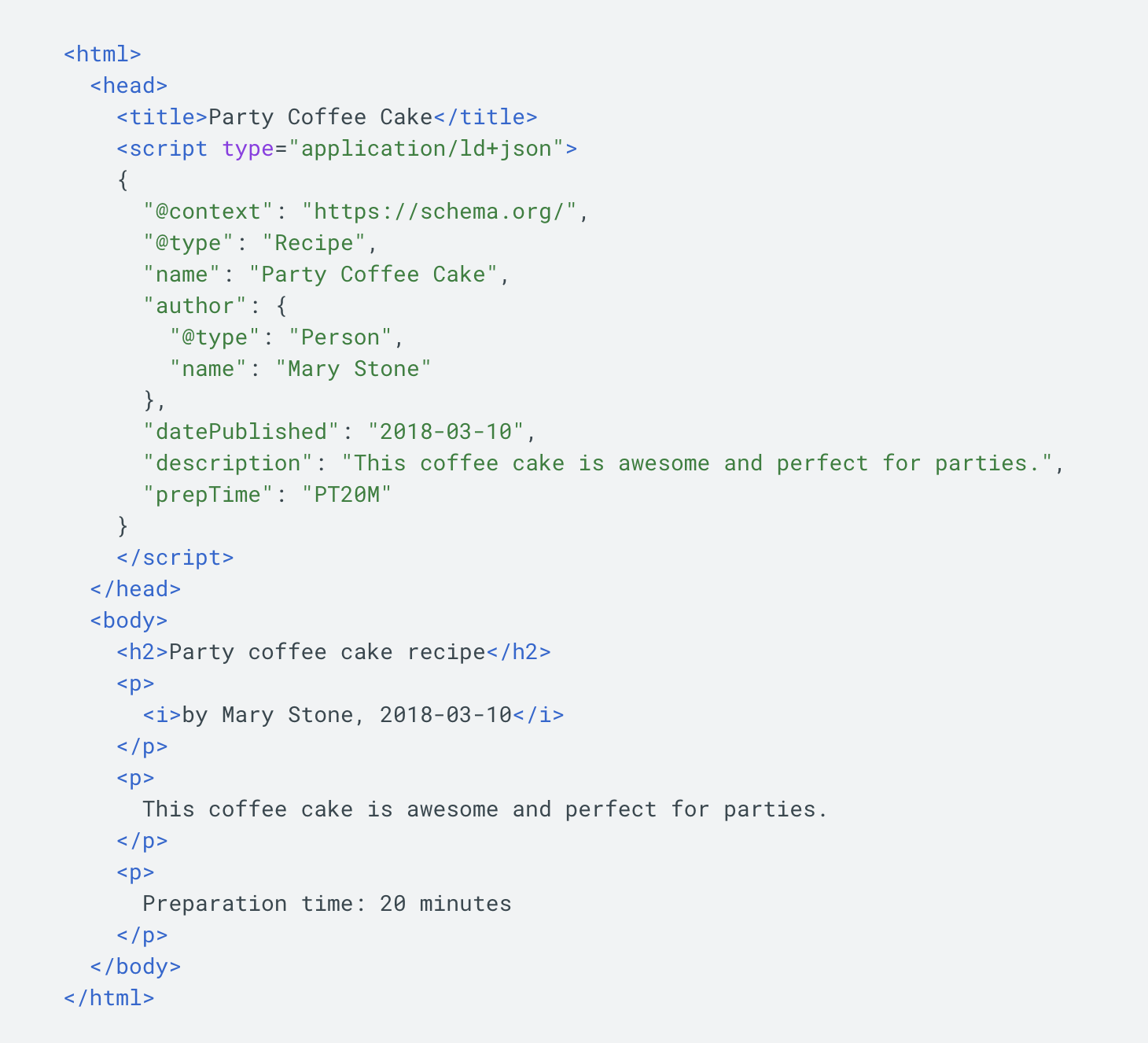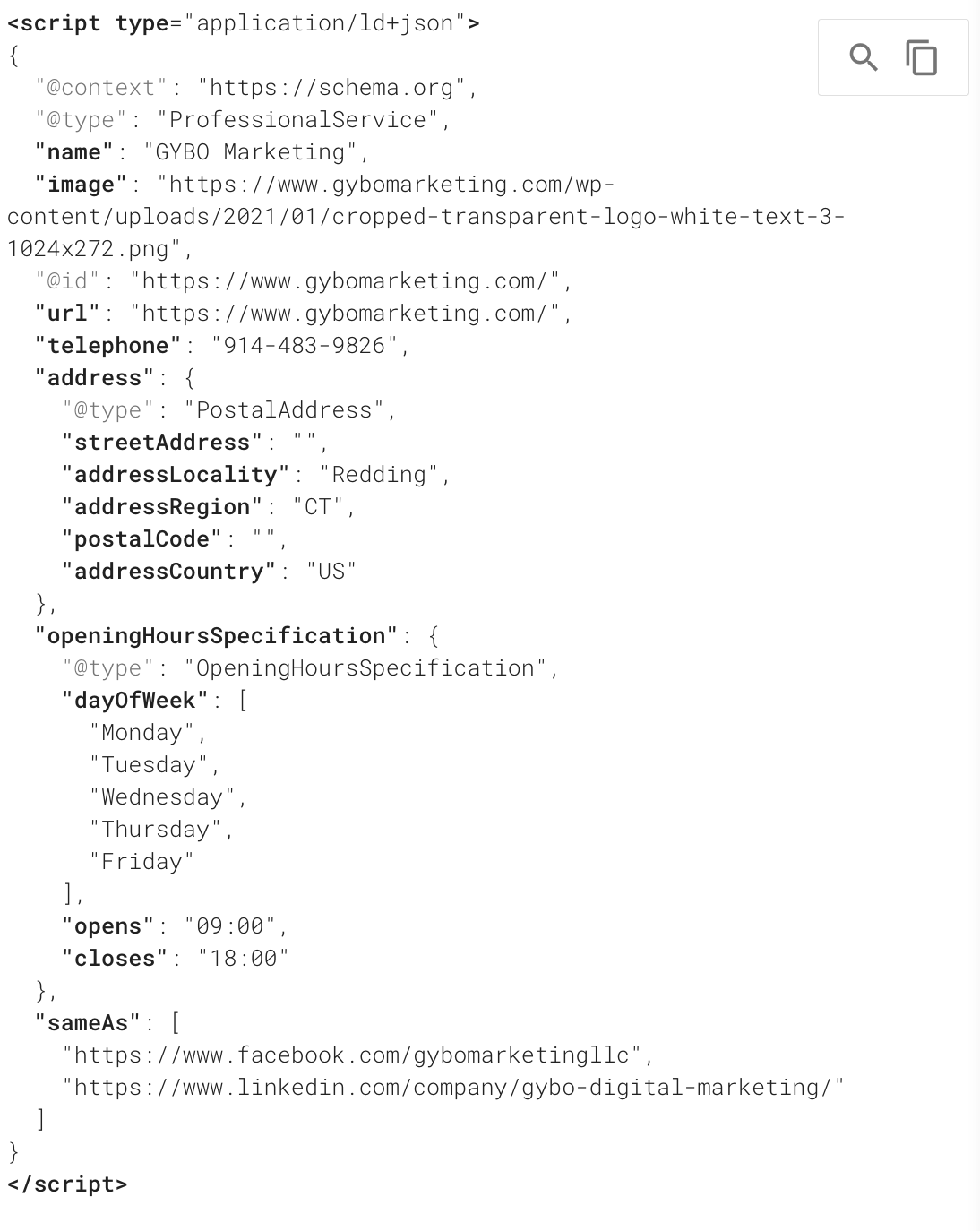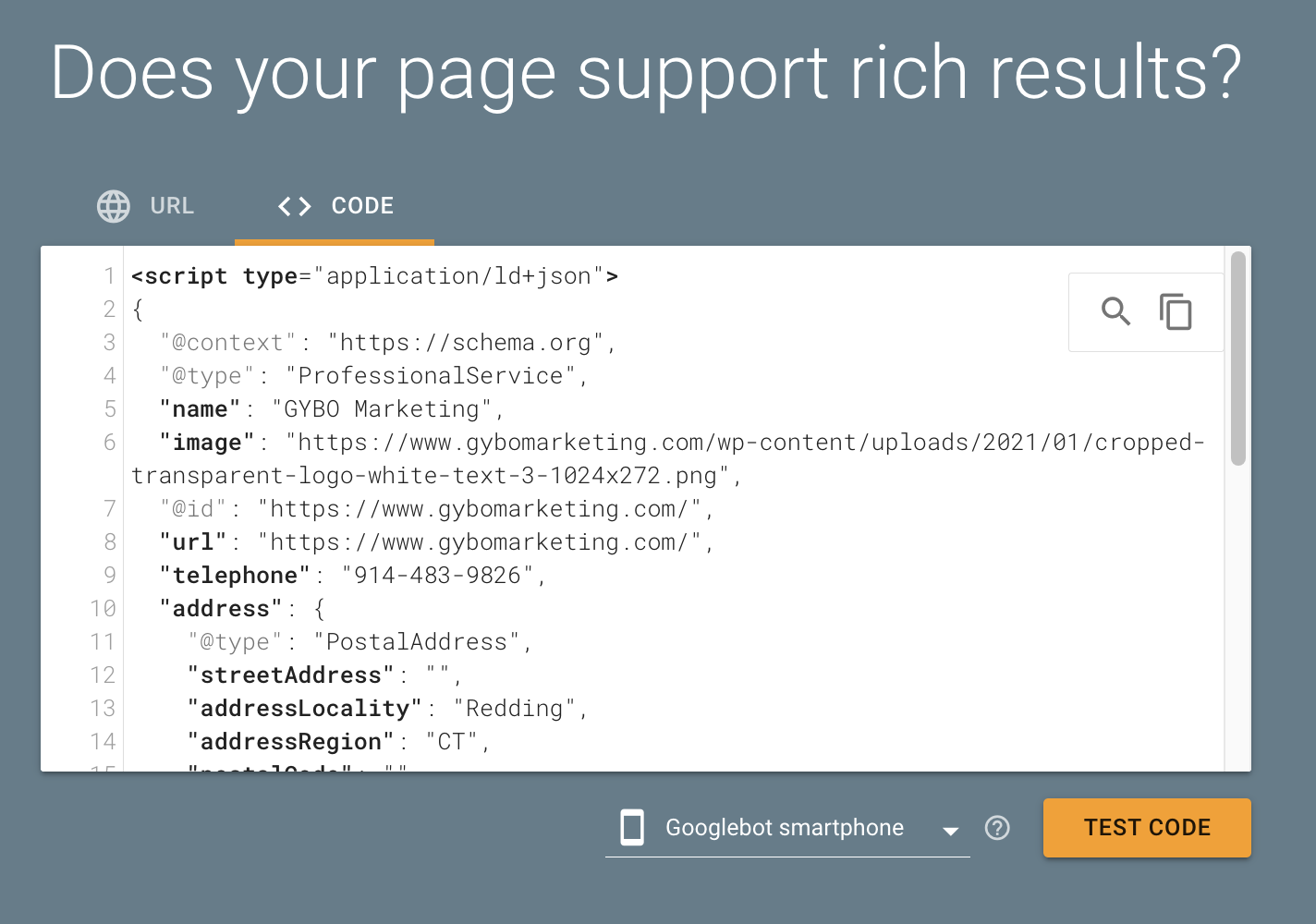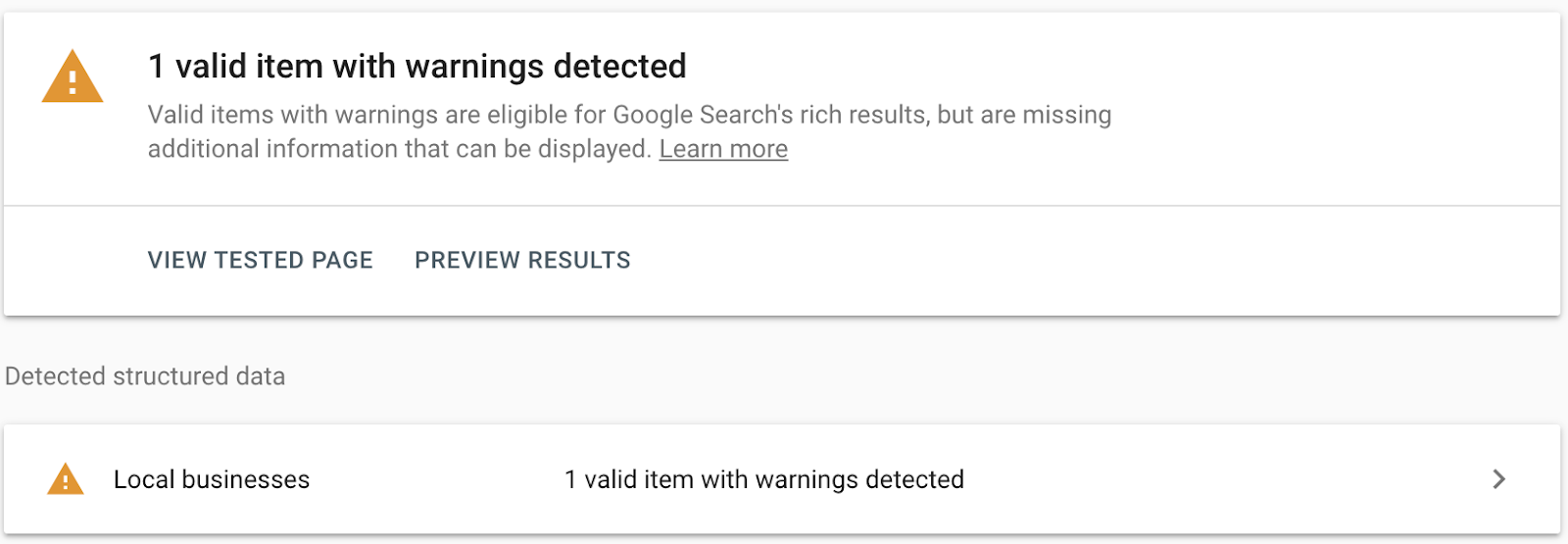What is structured data markup and do you need it for local business SEO? We’ll help you understand a bit about JSON-LD + why and how to use structured data markup for local SEO.
Structured Data Markup and Local SEO: The Complete Guide
Structured data (or Schema) markup is the process of adding information to a website’s HTML code in order to help search engines understand the content of the site and provide more accurate results for users.
There are two types of structured data markup: microdata and JSON-LD and can be used for a variety of information made available on the web.
The questions are, should you use Structured Data Markup for Local SEO and how can you implement it?
To answer the first, yes, structured data markup is important for every website, including local businesses.
To answer the second, let’s dive into all the details you need to know about getting started with structured data.

What is Structured Data?
Structured data markup is a way of adding meaning to content on a website so that it can be understood by search engines.
This type of markup is created in the form of tags and are embedded in the HTML code.
The goal of this markup is to provide information about the content on your site, such as what type or category it falls under, which allows search engines to better understand what your site’s content is about and rank it accordingly.
Google’s own documentation provides an example for how structured data can classify a recipe page. Here’s that example:

Source: developers.google.com
By implementing structured data, your content may appear in special search result features and enhancements.
Different Types of Schema Markup
- FAQ
- How To
- Video
- Article
- Breadcrumb
- Recipe
- And more…
You can find over 700 types, more than 1400 properties and much more on the organization of schemas to be implemented for your website.
Does Structured Data Help SEO?
Structured data can be a valuable tool in your SEO strategy!
Search engines and other machines can find it difficult to understand the context of a page. Structured data helps search engines (like Google) understand the content on your site better and more quickly through a language it understands. Because of this, your site’s visibility in search features can be enhanced.
Benefits of Schema Markup
SchemaApp tells us that there are great benefits to utilizing structured data, including but not limited to:
- Improved search visibility
- Greater control over how a brand appears in search results
- Improved content strategy
In fact, Google shares a case study in which StyleCraze improved their site CTR (click-through-rate) 1.2x through the use of “How-To” structured Data!

Source: developers.google.com
Further, ZipRecruiter grew their conversion rate through implementing structured data for “Job Search”.

Source: developers.google.com
Additionally, structured data can improve the chances of gaining a featured snippet and featured snippets are often used for delivering voice search results!
What is Local Schema Markup?
As a local business, optimizing your website for local SEO is a major ranking factor. In fact, optimizing content for local search is often something we recommend for newer sites as it’s much easier to rank on a local scale than it is to rank nationally.
In the same way other schemas work to improve the search engine’s ability to categorize your websites (products, how-tos, videos, etc), local business schema directly relates to your physical location and important information about the business.
The benefits of Local SEO include increased online visibility when it comes to localized search terms and cost-effective marketing to highly targeted, local traffic.
So it makes sense to enhance your local search results through the use of Local Business Schema.
“But how?!?!” you ask!
Here’s where the fun begins…
How to Create Local Business Schema
Because structured data comes in the form of code, you either need a bit of coding experience OR to use a schema generator. But, before you can start this process, you need to ensure your website is ready with the appropriate data to mark up.
Update Your Website
It’s time to identify important information and ensure these elements are placed somewhere on your website.
We like to place local business schema on our client’s Contact Us pages, but this means we need a certain amount of detail on the page, not just a contact form.
You’ll want to include elements like:
- Business Name
- Address
- Phone Number
- Email Address
Other elements that we like visible on the page include social properties, hours, company logo and a Google Map if possible.
If any of these elements are located in the header or footer across the site, they don’t need to be repeated on the contact page, but it can make for a better user experience.
To Note: When preparing your data for creating local business schema, you should know you’re only to “mark up” data that actually exists on the page (with a few exceptions but this can get complicated and too detailed if you’re new to structured data).
Additionally, remember that Google values a consistent NAP (name, address, and phone number) across all online profiles. So make sure your online profiles match what’s on your website (and that it’s correct!).
Create Local Business Schema
Regardless of how you intend to create local business schema (or any other structured data), we recommend taking a course or searching for how-to articles and videos to learn more about JSON-LD language (this is the code our team chooses for schema markup for our clients) as you’ll want to understand the placement of certain elements in case errors arise in coding.
Especially when you’re new to schema markup, make things easy on yourself and work with samples or generators to build basic local schema markup for your business.
Our favorite resources include:
- Local Business examples from Google Search Central
- Local Business information and samples from Schema.org
And there’s no harm in utilizing a free schema markup generator. A few we like are:
Another recommendation is to try out Google’s Structured Data Helper.
WordPress users may also find schema-specific plugins useful.
By learning the language and structure of this coding, you’ll eventually be able to build out and expand on structured data markup for more complete data.
How to Implement Structured Data for Your Website
Structured data markup can be implemented in different ways:
- Include code directly on the backend of your website.
- Insert using Google Tag Manager.
Many business owners and even SEO strategists don’t consider themselves web developers, so Google Tag Manager makes the most sense for many of us.
Here’s our code, as an example, to walk through the steps for implementation.

Once you’ve built your code, you’ll want to test the code for errors before proceeding with implementing it in Google Tag Manager. Do this by utilizing the Rich Test Results tool and place your code in the <> CODE option.

Then click the “TEST CODE” button.

In our case, we received a message that warnings were detected. In our sample, we’re missing the field “priceRange” which is optional, so we’re able to install this without issues.
Should your code come up with an error message, you’ll need to click in the Detected Structured Data section to determine what the error is.
Simple fixes can be missing required properties and more complicated errors often involve parsing (or incorrect structure of the schema coding language) errors. This is why we mentioned the importance of learning a bit about JSON-LD earlier in this post.
For errors, diagnose and research how to fix them. When all else fails, go back to the generator and pull clean code.
Once your structured data markup is ready, it’s time to implement using Google Tag Manager by creating a new tag and trigger that fires only on the contact page (based on our sample).
Test that the tag fires on the appropriate page and publish your new tag.
Test again using the aforementioned structured data testing tool, this time using the URL option.
How GYBO Marketing Helps With Structured Data Markup and Local SEO
We understand that many business owners and executives wear too many hats in their day-to-day operations as it is. Most aren’t ready to learn Local SEO strategies, much less get into the details of implementing structured data markup.
That’s where our team comes to the rescue!
By choosing us for your search engine optimizations, we can implement comprehensive and personalized SEO strategies, including structured data markup and Local SEO efforts that will grow your business online (GYBO)!
See how our clients have seen success from our services and contact us today to learn how we can help you.
